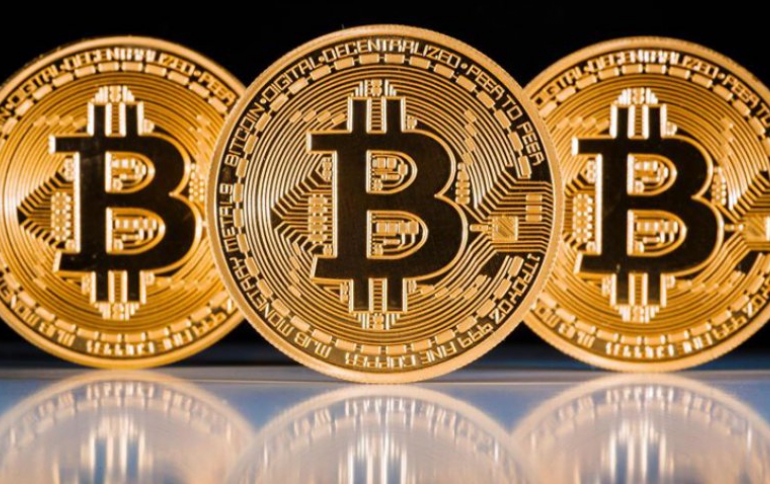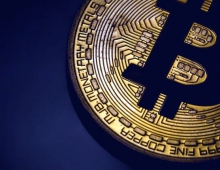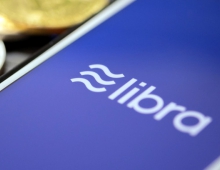
European Bank Authority Warns Consumers on Bitcoin
The European Union's banking watchdog on Friday issued a warning over virtual currency trading amid huge swings in the value of Bitcoin, a lack of regulation and money laundering risks.
The European Banking Authority (EBA) said that consumers are not protected through regulation when using virtual currencies as a means of payment and may be at risk of losing their money. It also added that there is no guarantee that currency values remain stable The warning was issued while the Authority assesses further all relevant aspects associated with virtual currencies, in order to identify whether virtual currencies can and should be regulated and supervised.
According to the EBA, while virtual currencies continue to hit the headlines and are enjoying increasing popularity, consumers need to remain aware of the risks associated with them. In particular, consumers should be aware that exchange platforms tend to be unregulated and are not banks that hold their virtual currency as a deposit. Currently, no specific regulatory protections exist in the EU that would protect consumers from financial losses if a platform that exchanges or holds virtual currencies fails or goes out of business.
The EBA added that the 'digital wallets' containing consumers' virtual currency stored on computers, laptops or smart phones, are not impervious to hackers. Cases have been reported of consumers losing significant amounts of virtual currency, with little prospect of having it returned. Also, when using virtual currency for commercial transactions, consumers are not protected by any refund rights under EU law.
The EBA also reminded that as transactions in virtual currency provide a high degree of anonymity, they may be misused for criminal activities, including money laundering. This misuse could lead law enforcement agencies to close exchange platforms at short notice and prevent consumers from accessing or retrieving any funds that the platforms may be holding for them.
Consumers should also remain mindful that holding virtual currencies may have tax implications, and should make sure that they give due consideration to whether tax liabilities apply in their country when using virtual currencies.
The EBA recommended that, if consumers buy virtual currencies, they should fully understand their specific characteristics and not use 'real' money that they cannot afford to lose.
A virtual currency is a form of unregulated digital money, not issued or guaranteed by a central bank, which can act as means of payment. Virtual currencies have come in many forms, beginning as currencies within online computer gaming environments and social networks, and developing into means of payment accepted 'offline' or in 'real life'. It is now increasingly possible to use virtual currencies as a means to pay for goods and services with retailers, restaurants and entertainment venues. These transactions often do not incur any fees or charges, and do not involve a bank.
More recently, the virtual currency 'Bitcoin' has set the scene for a new generation of decentralised, peer-to-peer virtual currencies - often also referred to as crypto-currencies.
Virtual currencies can be bought at an exchange platform using conventional currency. They are then transferred to a personalised account known as a 'digital wallet'. Using this wallet, consumers can send virtual currencies online to anyone else willing to accept them, or convert them back into a conventional fiat currency (such as the Euro, Pound or Dollar).
According to the EBA, while virtual currencies continue to hit the headlines and are enjoying increasing popularity, consumers need to remain aware of the risks associated with them. In particular, consumers should be aware that exchange platforms tend to be unregulated and are not banks that hold their virtual currency as a deposit. Currently, no specific regulatory protections exist in the EU that would protect consumers from financial losses if a platform that exchanges or holds virtual currencies fails or goes out of business.
The EBA added that the 'digital wallets' containing consumers' virtual currency stored on computers, laptops or smart phones, are not impervious to hackers. Cases have been reported of consumers losing significant amounts of virtual currency, with little prospect of having it returned. Also, when using virtual currency for commercial transactions, consumers are not protected by any refund rights under EU law.
The EBA also reminded that as transactions in virtual currency provide a high degree of anonymity, they may be misused for criminal activities, including money laundering. This misuse could lead law enforcement agencies to close exchange platforms at short notice and prevent consumers from accessing or retrieving any funds that the platforms may be holding for them.
Consumers should also remain mindful that holding virtual currencies may have tax implications, and should make sure that they give due consideration to whether tax liabilities apply in their country when using virtual currencies.
The EBA recommended that, if consumers buy virtual currencies, they should fully understand their specific characteristics and not use 'real' money that they cannot afford to lose.
A virtual currency is a form of unregulated digital money, not issued or guaranteed by a central bank, which can act as means of payment. Virtual currencies have come in many forms, beginning as currencies within online computer gaming environments and social networks, and developing into means of payment accepted 'offline' or in 'real life'. It is now increasingly possible to use virtual currencies as a means to pay for goods and services with retailers, restaurants and entertainment venues. These transactions often do not incur any fees or charges, and do not involve a bank.
More recently, the virtual currency 'Bitcoin' has set the scene for a new generation of decentralised, peer-to-peer virtual currencies - often also referred to as crypto-currencies.
Virtual currencies can be bought at an exchange platform using conventional currency. They are then transferred to a personalised account known as a 'digital wallet'. Using this wallet, consumers can send virtual currencies online to anyone else willing to accept them, or convert them back into a conventional fiat currency (such as the Euro, Pound or Dollar).





















